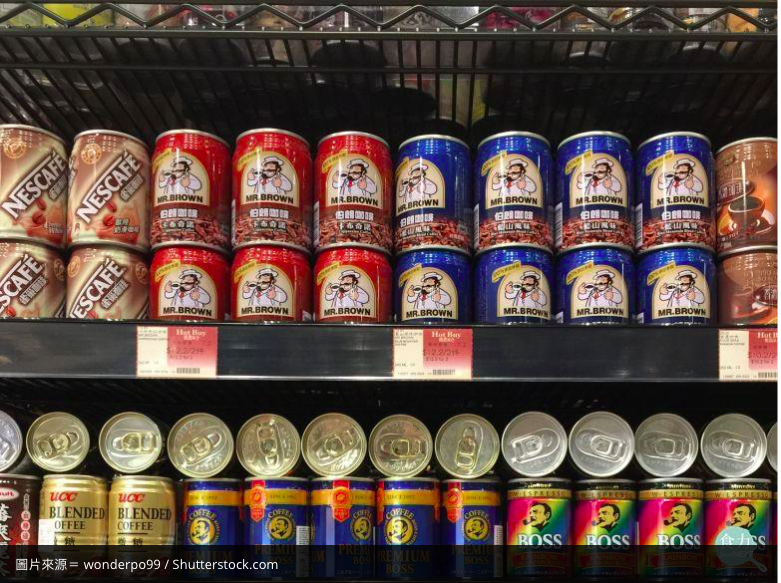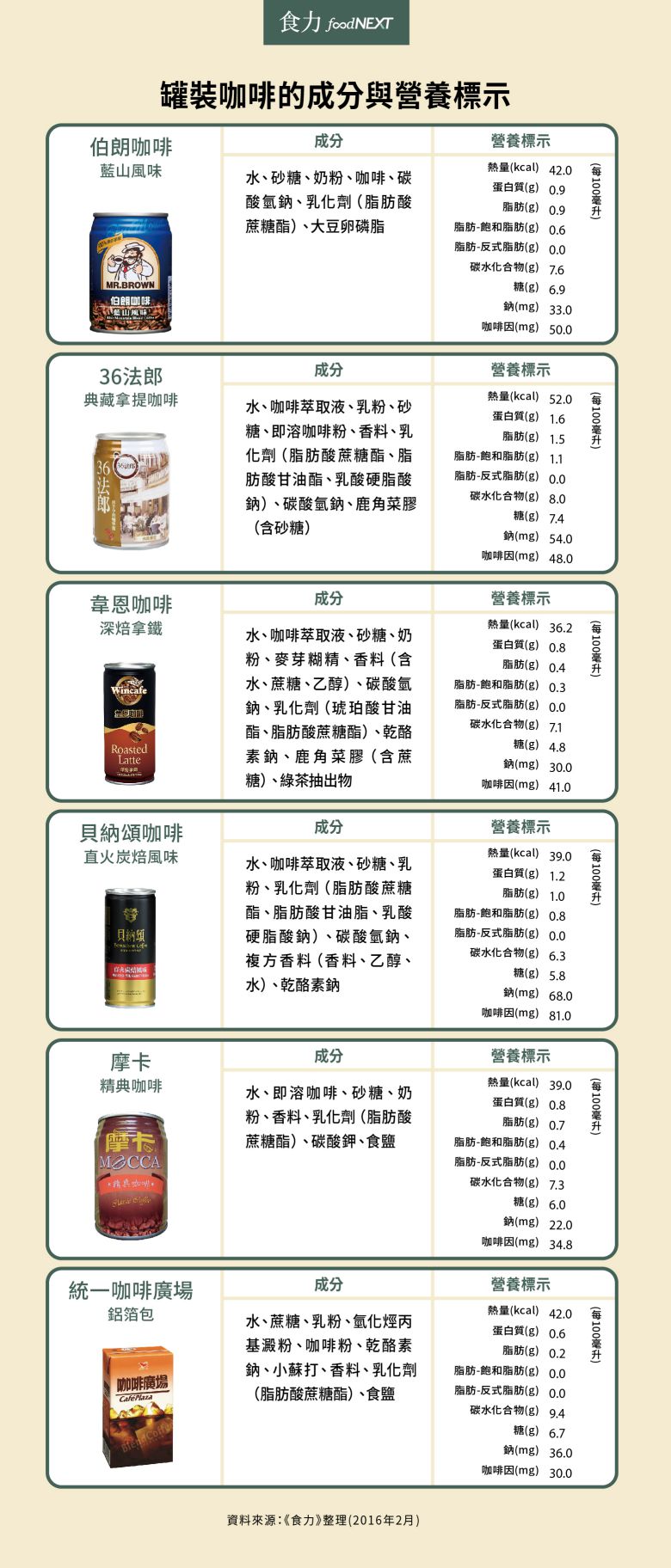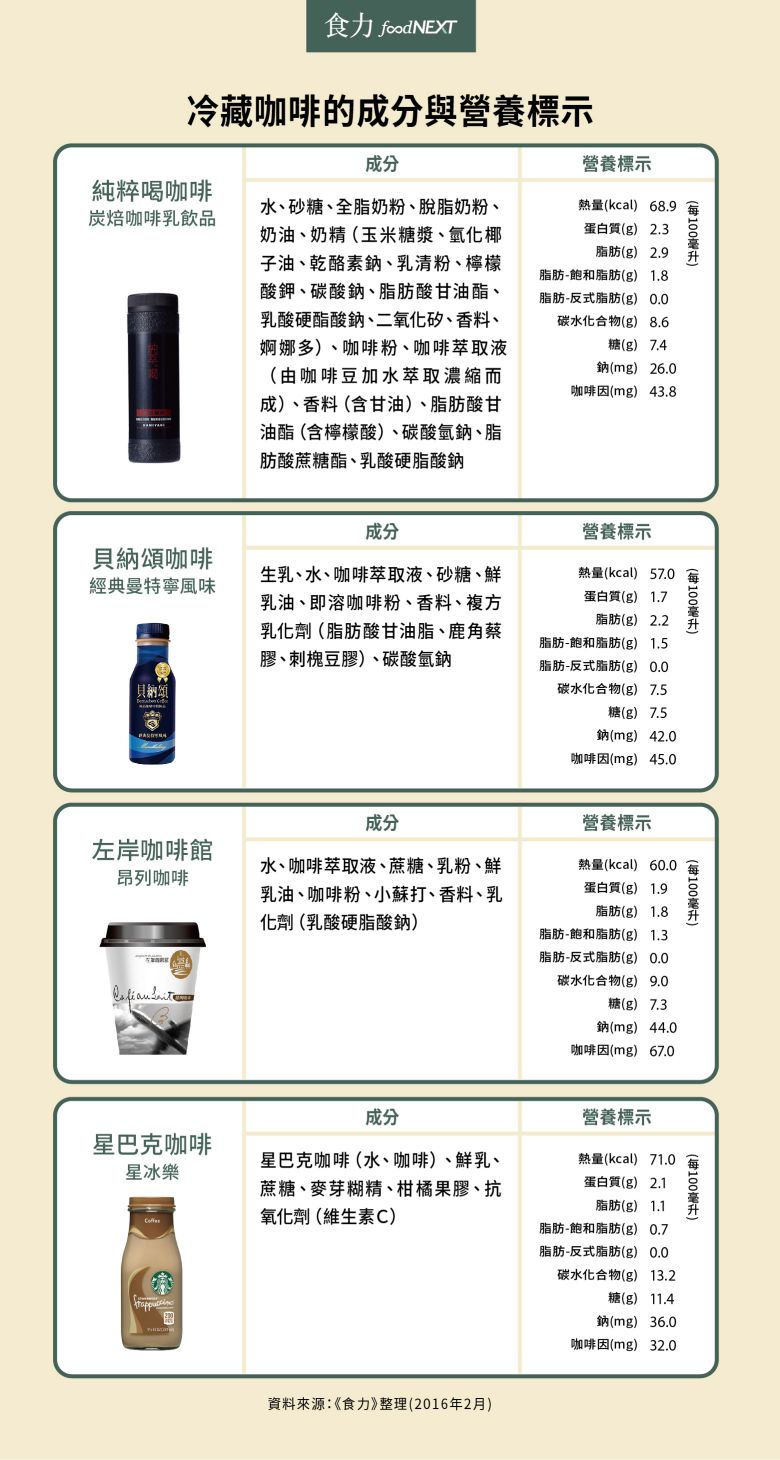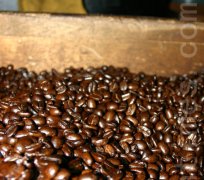Ready-to-drink canned coffee is real, not seasoned coffee.

For professional baristas, please follow the coffee workshop (Wechat official account cafe_style)
What you should know about food.
The main difference between canned coffee and frozen coffee lies in the different sterilization conditions. Canned coffee is sterilized at high temperature, so it can be preserved at room temperature. The raw material contains milk and other ingredients, and Mena reaction will occur during high temperature sterilization. Therefore, the flavor of canned coffee at room temperature is different from that of freshly brewed coffee.
Author = Chen Yunzhu
The main difference between canned and refrigerated coffee lies in the different sterilization conditions, so the products can be divided into room temperature and cold storage. Normal temperature coffee is mostly packed with iron cans and aluminum foil, while refrigerated coffee is mainly packaged in small treasure bottles, cups and fresh houses. Different packaging materials not only affect pricing and commodity impression, but also have different market segments and channel distribution.
Brown coffee was sold by Golden car Company in 1982. Canned coffee at room temperature has been manufactured and sold in Taiwan for more than 30 years. Ma Minghao, a spokesman for Golden car Company, said that consumers in Taiwan were not familiar with coffee at the beginning. According to market research, half of the people do not drink coffee. It is generally believed that coffee is black, bitter and bad for the skin. Golden car Company has been educating consumers through advertising. Brown coffee still occupies the first place in the room temperature canned coffee market, in addition to the cost advantage of importing a large number of coffee beans to make the price close to the people, perhaps because it is a nostalgic flavor in the memory of the public.
In recent years, the technological progress of Italian-style coffee machines has greatly increased the number of coffee shops, including convenience stores, which also start to sell freshly brewed coffee, while canned coffee at room temperature tastes like condensed milk plus coffee. It is inevitable that some people think that canned coffee at room temperature is seasoned because it is different from that of freshly brewed coffee, but in fact, it is the same as other canned food after filling and sealing. It must be sterilized at high temperature and high pressure before it can be preserved at room temperature for a long time, because the raw material contains ingredients such as milk, and Mena reaction will occur during high temperature sterilization, which makes the flavor of canned coffee at room temperature completely different from that of freshly brewed coffee.
Taiwan's refrigerated canned coffee market has grown obviously since 2003. compared with canned coffee at room temperature, its flavor is closer to that of freshly brewed coffee, and its late development is related to the change of transportation and selling environment. In recent years, because currently brewed coffee occupies most of the market, the price of some refrigerated canned coffee is similar to that of canned coffee, so it is competitive and crowded out, unlike canned coffee which still has obvious advantages of low price. Therefore, in addition to its own traceability and independent management of raw materials, Liu Juncheng, a coffee quality appraiser at the Weiquan Central Research Institute, said that obtaining the qualification of a coffee quality appraiser from SCAA, an international notarization unit, and carefully developing coffee bean formulations to be submitted to the international coffee evaluation organization for Coffee Review scores are all ways to increase competitiveness in brand management.
Food Power collected and compared the common canned coffee products sold in the market, and found that the main ingredients were water, sugar, milk ingredients, and coffee. As can be known from the labeling of ingredients, most canned coffee was mixed with milk powder, and only a small number of brands were made with milk. In the past, most consumers thought that manufacturers would use non-milk ingredients such as cream to add flavor, but in fact, canned coffee sold in the market seldom used cream. When it comes to coffee ingredients, there is a common misunderstanding about canned coffee, that is, the "coffee extract" in the ingredient label. therefore, some consumers think that this means that canned coffee is chemically synthesized. but in fact, coffee extract only refers to coffee extracted from coffee beans, the manufacturer said that the label extract is only for identification, and we also found that some products directly marked the word coffee. It can be seen that there is no uniform regulation on this part in the current laws and regulations, and in addition, some products will add instant coffee powder, which is mainly used to add flavor, but it is not rumored to be made of artificial spices and other "seasoning".
In addition to the main ingredients, there are two other legal food additives commonly found in canned coffee, namely sodium bicarbonate and emulsifier. Sodium bicarbonate is commonly known as baking soda, which can be added to canned coffee to balance the pH value. The main purpose is to avoid the deterioration of milk protein caused by high temperature sterilization, otherwise it may appear like salted soybean milk. Emulsifier is to prevent coffee drinks from having an oil slick, and the purpose of adding emulsifiers is to ensure the quality and state of the products, and to avoid consumers' bad feelings when drinking them, although it is generally believed that the purpose of adding food additives is to save costs. but in fact, food additives themselves are also one of the raw material costs, and legal operators will not use them indiscriminately without purpose.
In terms of nutrients, drinking canned coffee products should pay attention to the intake of sugar and sodium, and there is a significant gap between sugar and sodium content of canned coffee sold in the market. According to the American Heart Association's recommended daily sugar intake of less than 25 grams for women and less than 37.5 grams for men, among the canned coffee sold in the market, the highest sugar content is 11 grams per 100 milliliters, equivalent to 32 grams per can, which has exceeded the daily intake of women recommended by the American Heart Association. In addition, the Ministry of Health and Welfare recommends a daily intake of 2400 milligrams of sodium, but dietitian Lin Shihang points out that in fact, the human body only needs 100mg of sodium a day. Among the canned coffee sold in the market, the highest is 68 milligrams of sodium per 100ml, so you can pay more attention to your purchases and don't drink too much.


Important Notice :
前街咖啡 FrontStreet Coffee has moved to new addredd:
FrontStreet Coffee Address: 315,Donghua East Road,GuangZhou
Tel:020 38364473
- Prev

Starbucks' hot eggnog latte teaches you how to make it into ice!
Eggnog (Eggnog) is a traditional western Christmas drink, invented by the British in the 17th century. Nog in Eggnog originally refers to a British strong beer, but the traditional eggnog is based on brandy, with fresh milk, egg yolk and sugar water, shaken until bubbly, so the wine is rich and sweet. After eggnog was introduced into America in the 19th century, Americans made it with rum.
- Next

You know that the flavor of coffee is very different.
Professional barista communication please follow the coffee workshop (Wechat official account cafe_style) coffee beans (photo: Li Xianzhen /) tea is also clear, water is also clear, water boil tea to the person you love. Fragrant tea is pleasant, thick coffee is attractive; in fact, coffee also has a delicate fragrance, which coffee is fragrant, which coffee is strong? Experts say the fragrance of the Blue Mountains is fragrant and Manning is bitter. Landai
Related
- What grade does Jamaica Blue Mountain No. 1 coffee belong to and how to drink it better? What is the highest grade of Blue Mountain coffee for coffee aristocrats?
- What are the flavor characteristics of the world-famous coffee Blue Mountain No. 1 Golden Mantelin? What are the characteristics of deep-roasted bitter coffee?
- Can I make coffee a second time in an Italian hand-brewed mocha pot? Why can't coffee be brewed several times like tea leaves?
- Hand-brewed coffee flows with a knife and a tornado. How to brew it? What is the proportion of grinding water and water temperature divided into?
- What is the difference between Indonesian Sumatra Mantinin coffee and gold Mantinin? How to distinguish between real and fake golden Mantelin coffee?
- What does bypass mean in coffee? Why can hand-brewed coffee and water make it better?
- Unexpected! Ruixing Telunsu lattes use a smoothie machine to foam milk?!
- % Arabia's first store in Henan opens into the village?! Netizen: Thought it was P's
- Does an authentic standard mocha coffee recipe use chocolate sauce or powder? Mocha Latte/Dirty Coffee/Salty Mocha Coffee Recipe Share!
- What is the difference between Vietnam egg coffee and Norway egg coffee? Hand-brewed single product coffee filter paper filter cloth filter flat solution!

